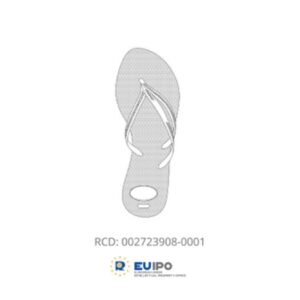This article will explore the last 8 months of trade marks from July 2022 onwards. There are 10 cases which vary from smartwatches to chocolate and Louboutins.
1.Montres Breguet SA v Samsung Electronics Co. Ltd [2022] EWHC 1895 (Ch) (July 2022)
Samsung was being held directly liable for infringing several registered trade marks owned by watchmakers, where consumers had downloaded the digital watch face apps that were created by a third-party developer from Samsung’s online app store to its smart watches. Samsung submitted that it provided a platform in the form of a store in which third party app developers provided apps.
It was concluded that Samsung had infringed several trade marks, therefore the claim was allowed. The claimant was granted an injunction restraining the defendant from further infringement. In relation to costs Samsung were ordered to pay 85% of the claimants’ costs.
The Judge did grant permission to appeal in relation to – (a) the correct approach for app stores in relation to Article 14 of the e-Commerce Directive and (b) the issues around “use” specifically whether there was an error of law in taking the “look at everything” approach in determining whether there was use by Samsung in the course of trade.
This could be an important case as platforms such as Samsung have been able to benefit from using its own platforms to potentially benefit from infringement against rightsholders.
2.Societe des Produits Nestle SA v Cadbury UK Ltd [2022] EWHC1671 (Ch) (July 2022)
Nestle appealed against a hearing officer’s decision to register a shade of purple (Pantone 2685C) as a trade mark for chocolate on Cadbury’s application. Cadbury applied to register three marks in class 30. Nestle opposed all three marks on the grounds that the marks did not meet the requirements of a sign.
The UKIPO held:
Mark 362 – Applied to the whole surface of the packaging of the goods. This opposition was dismissed as the wording of the mark was found to be clear and precise.
Mark 361 – Applied to the packaging of the goods. This was rejected by the UKIPO as it was deemed ambiguous.
Mark 822 – This mark was rejected as it was deemed as more ambiguous than mark 361 and representing a multiplicity of forms without explaining how the colour is used at all. However, on appeal the registration was upheld.
It can be suggested that the UK should be more open to register colour marks and other non-traditional marks. However, it is unlikely that this case will be sufficient enough to change the outlook on the matter as all the marks had already acquired distinctiveness.
3.Standard International Management v EUIPO Case T-768/20 (July 2022)
This case addresses a key issue regarding hotel and leisure brands within the EU with the physical hotel being outside the EU jurisdiction. In this case Standard International Management LLC had a trade mark registered in the EU. Asia Standard Management Services Ltd applied for the mark to be revoked as it was not put to genuine use in the EU.
The Cancellation Division and the Board of Appeal held that the mark was not put into genuine use because the hotel services were outside of the EU regardless of advertisements and customers.
However, on appeal the General Court said that it would be wrong to conclude that the mark could not be put to genuine use in the EU because the physical hotel services are in the U.S. Therefore, the court considered evidence of advertisement and customers in the EU.
This decision provides non-EU hotel owners with significant comfort and control regarding EU trade marks if they have significant customers in the EU along with targeted advertising and branding.
4. SkyKick UK Ltd (Appellants) v Sky Ltd (Respondents) UKSC 2021/0181 (July 2022)
Sky issued proceedings against cloud management and software provider, SkyKick. Sky claimed that that SkyKick were infringing on their EU trade marks. SkyKick disputed the claims and lodged a counterclaim to the High Court. The court concluded that Sky registered the trade marks in bad faith due to broad categories used and that they had no intention of ever using the trade marks in those categories. Therefore, the marks were partially invalid.
Sky appealed the decision. The Court of Appeal said that whilst Sky’s specifications of the marks were broad and there was no real prospect of using the mark, it was held that neither of these were indications of bad faith. Consequently, the High Court’s decision was overturned.
The case is now due to proceed to the Supreme Court as SkyKick attempt to overturn the decision made by the Court of Appeal. The Supreme Court’s decision will have a huge impact as a reversal of the decision would mean that Sky may lose their monopoly on ‘computer software’ trade marks.
5. Tradeix Ltd v New Holland Ventures (MARCO POLO) O/681/22 UKIPO (August 2022)
This case relates to the post-Brexit rule of requiring a UK address for service when filing a UK trade mark. However, there is no upfront requirement for such an address for International Registrations (IR) designating the UK.
In MARCO POLO an application of invalidity was filed against the IR UK. The UKIPO posted a letter to the proprietors registered office in Australia stating that they have a 2-month deadline to have a UK address for service and to file a defence. However, due to the proprietor being on lockdown, they did not get the letter and lost the registration of the trade mark.
On appeal it was held that the UKIPO has no power to serve the invalidity action outside of the jurisdiction in Australia. The only power it has is to write to request an appointment with a UK representative. Therefore, the previous decision was overturned.
A consequence of this decision is that the UKIPO introduced a new practice to handle matters where there is no UK address for service. There is now a new one-month window with respect to applications for invalidation, revocation on the grounds of non-use, revocation on grounds other than non-use and rectification.
Therefore, proprietors who are without a UK address for service should check their portfolio details and ensure everything is up to date to ensure that any letter from UKIPO can be handled within the time limit.
6. Monster Energy Company v Red Bull GmbH [2022] EWHC 2155 (Ch) (August 2022)
Both Monster Energy and Red Bull were involved in a trade mark dispute. Monster Energy have attempted to register the mark ‘Red Dawg’ under covering non-alcoholic beverages (Class 32). At the original hearing Red Bull made a successful opposition of the mark on the basis that the Red Bull mark had a reputation in the energy drink market, under S.5(3) Trade Marks Act 1994.
On appeal, Monster Energy claimed that there was no evidence of ‘free riding’ or to take advantage of the Red Bull mark. Moreover, Monster Energy further argued that Red Bull were required to show that there was a serious risk of unfair advantage and that due to Monster Energy’s stature and reputation of their global brand, there was no need for them to seek an unfair advantage from the similarities of the two marks.
However, the judge was not persuaded by this argument as based on the analysis that was undertaken, there was an implicit assumption that Monster Energy chose the mark ‘Red Dawg’ for the purpose of influencing consumer behaviour and due to it being similar to the Red Bull mark, they would see an increase in sales. Therefore, the appeal was dismissed.
It can be argued that this is a highly debateable decision as it essentially gives Red Bull a monopoly in relation to ‘Red’ being used for non-alcoholic drinks.
7. Lidl Great Britain v Tesco Stores [2022] EWCA Civ 1433 (November 2022)
Since September 2020 Tesco has been using a logo that consists of yellow circle with a blue background with the words ‘CLUBCARD PRICES’ within the yellow circle. Lidl claims that the sign used by Tesco constitutes a trade mark infringement as it is allegedly similar to the well-known Lidl logo which is a registered mark. Tesco have denied that they have infringed the trade mark and issued a counterclaim for invalidity and revocation of Lidl’s wordless mark on the grounds of bad faith and non-use as the mark has never been used in the UK in the form that it was registered for. Lidl applied to the High Court for a strike out application which was successful, this meant that Tesco could not proceed with their counterclaim of bad faith and the declaration of invalidity.
Tesco appealed the decision; the Court of Appeal held that the High Court Judge failed to consider that bad faith is a developing area of law. Moreover, it was decided that the High Court Judge failed to properly apply the facts that were pleaded in relation to the bad faith counterclaim. The Court of Appeal concluded that Tesco’s bad faith counterclaim has a real prospect of success and should not be struck out.
The successful appeal reinstates the counterclaim Tesco had. It will be interesting to see how the court approach the wordless mark dispute.
8. Combe International v Dr August Wolff GmbH & Co KG Arzneimittel [2022] EWCA Civ 1562 (November 2022)
Combe claimed that the defendant infringed on their three UK trade marks for VAGISAL with the use of the mark VAGISAN. The High Court held that not only was there likelihood of confusion, but the claimants were also able to demonstrate actual confusion.
The defendants appealed the decision however it was rejected. One of the grounds of appeal was under S.48. which states:
“Where the proprietor of an earlier trade mark or other earlier right has acquiesced for a continuous period of five years in the use of a registered trade mark in the United Kingdom, being aware of that use, there shall cease to be any entitlement on the basis of that earlier trade mark or other right”
The defendant stated that the claimants acquiesced in the use in the UK by the first defendant of its registered trade mark for the mark VAGISAN for more than 5 years. It was common knowledge that the claimants had become aware of the registration and use of the VAGISAN mark by late 2014. However, the Court of Appeal rejected this stating that hat the claimants were not aware of the use of VAGISAN for a long period during 2015 and 2016, despite keeping a watch for such use. In those circumstances, it was reasonable for the claimants to assume that VAGISAN had been withdrawn from the UK market.
This case suggests that if a registered trade mark owner wants to avoid the risk of an action for infringement being defeated on the basis of a S. 48(1) acquiescence defence, then they need to bring legal proceedings against the infringer.
9. McDonald’s v Supermac’s, Case R0543/2019-4, EUIPO Board of Appeal (December 2022)
In 2019 the Irish fast food chain Supermac was victorious against McDonalds which led to the revocation of ‘Mc’ to some of their menu items. This is not the only dispute these parties have been in as Supermac also applied to cancel McDonald’s European trade mark for Big Mac. This was successful as McDonalds was unable to demonstrate that there was genuine use.
Fast forward to now McDonalds has appealed the decision to the Board of Appeals and they were successful. McDonalds learnt from their mistakes 3 years ago by bolstering their evidence through classes 29, 30 and 42 by including “meat sandwiches” in the description.
This case shows that big companies need to be careful with their trade marks as McDonalds was undoubtably hurt with losing its trade marks during the 3 year period of the appeal.
10. Louboutin v Amazon Cases C-148/21 and C-184/21, Court of Justice of the EU (December 2022)
In this case fake, red-soled shoes were being sold by third party vendors on the Amazon platform, infringing Louboutin’s red sole registered EU trade mark. Louboutin brought infringement actions against Amazon for the alleged use and sale by Amazon of signs identical to Louboutin’s registered EU trade mark without their consent.
The CJEU held that an operator of an online marketplace, which integrates its own sales platform and the sale of third-party goods, can be held liable for third party advertisements that infringe a third party’s trade mark if the average consumer would be confused as to the origin of the advert. This can occur when the operator (a) displays offers for its products and its sellers’ products in the same way side by side; (b) where it places its own logo on its sellers’ products as the distributor; and (c) where it offers to store and ship the goods of its sellers. Therefore, can be held directly liable for infringement of its market place sellers.
These are the key trade mark cases over the last 8 months. If you have any queries regarding trade marks or an alternative matter, you can contact us today.
By Abhiraj Aujla











